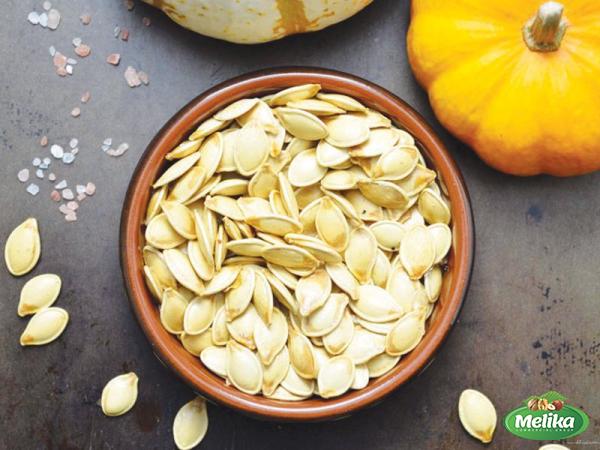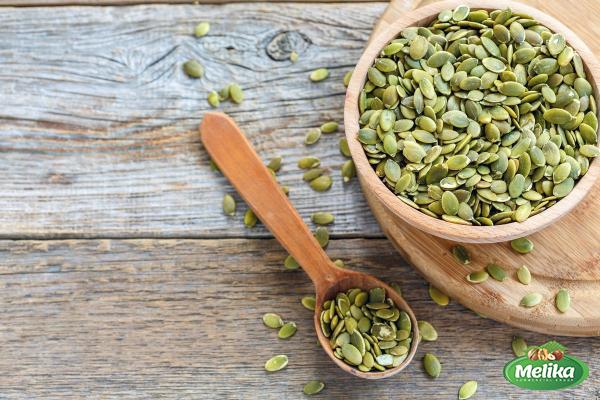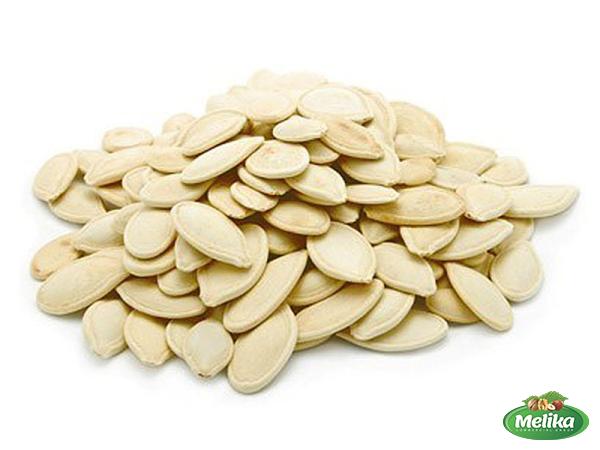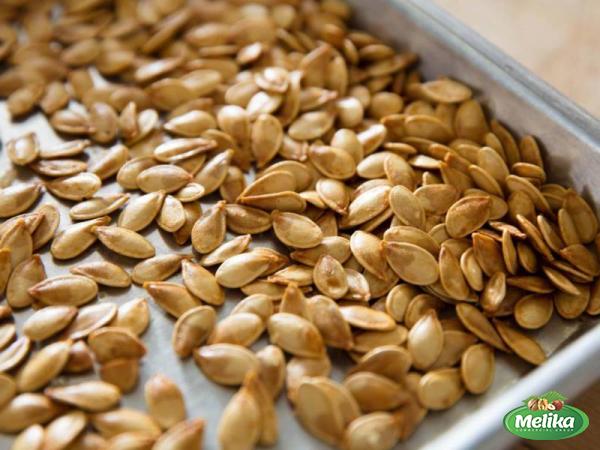Pumpkin seeds are a popular and nutritious snack that is consumed and enjoyed worldwide. Whether you are a retailer, a food manufacturer, or a health-conscious individual, purchasing pumpkin seeds in bulk can provide a cost-effective way to meet demand and ensure a steady supply. However, when making bulk purchases, it is essential to consider the price and quality of the product to ensure that you are getting the best value for your money. This article will explore the factors to consider when purchasing pumpkin seeds in bulk, including price considerations and the importance of quality testing. Price Considerations for Bulk Purchases: 1. Cost-saving benefits: When purchasing pumpkin seeds in bulk, one of the primary advantages is cost savings. Buying in larger quantities often allows for better negotiations on price per unit, providing an opportunity to minimize costs and increase profit margins. 2. Market analysis: Before making bulk purchases, it is crucial to conduct market analysis to understand current trends, demands, and price fluctuations. Factors such as seasonality and supply-demand dynamics can impact pumpkin seed prices. Staying informed about price trends can help you make an informed decision on when to buy and how much to purchase. 3. Supplier selection: Choosing the right supplier is key to getting the best price for bulk pumpkin seeds. Consider factors such as their reputation, reliability, and ability to meet your specific requirements. Request quotes from multiple suppliers and compare their offerings to ensure that you are receiving competitive pricing.

nuts
 4. Packaging and transportation costs: In addition to considering the base price of pumpkin seeds, it’s important to account for packaging and transportation costs. Bulk purchases typically require adequate packaging and secure transportation to prevent damage or spoilage. Assess these costs and factor them into your overall purchasing decision. Quality Testing for Bulk Purchased Pumpkin Seeds: 1. Comprehensive quality control: Ensuring the quality of pumpkin seeds is crucial to maintain customer satisfaction and uphold your reputation. Implementing a robust quality control process is essential when buying in bulk. This includes inspecting the seeds for physical attributes such as size, color, and shape, as well as conducting moisture and purity tests. 2. Microbiological testing: Microbiological testing is crucial to determine the presence of harmful bacteria, fungi, or other pathogens that can pose health risks. Testing for common bacteria like Salmonella and E. coli is necessary to ensure that the pumpkin seeds are safe for consumption. 3. Nutritional profiling: Pumpkin seeds are renowned for their nutritional value, containing a range of vitamins, minerals, and antioxidants. Testing for nutritional profiling can help you verify the nutritional content of the pumpkin seeds and ensure the accuracy of labeling claims. 4. Shelf-life analysis: Pumpkin seeds, like any other food product, have limited shelf life. Conducting stability tests to analyze factors such as oxidation and rancidity levels can help assess the longevity of your bulk-purchased seeds. It is important to select suppliers who provide adequate packaging and storage conditions to minimize spoilage. Conclusion: Purchasing pumpkin seeds in bulk can be an advantageous option for businesses and individuals seeking cost savings and a consistent supply. However, ensuring the quality of the product through comprehensive testing is vital to maintain customer satisfaction and protect your brand reputation. When making bulk purchases, consider factors such as price negotiation, market analysis, packaging, and transportation costs. Implementing quality testing measures such as physical inspections, microbiological analysis, and nutritional profiling will contribute to the overall success and reliability of your bulk purchase. By adhering to these guidelines, you can confidently make informed purchasing decisions and meet the demands of your target market. Pumpkin seeds are a popular and nutritious snack, sought after by health-conscious individuals and food manufacturers alike. Purchasing pumpkin seeds in bulk can provide cost savings and ensure a steady supply. However, it is crucial to consider both price considerations and quality testing to make informed decisions when buying in bulk.
4. Packaging and transportation costs: In addition to considering the base price of pumpkin seeds, it’s important to account for packaging and transportation costs. Bulk purchases typically require adequate packaging and secure transportation to prevent damage or spoilage. Assess these costs and factor them into your overall purchasing decision. Quality Testing for Bulk Purchased Pumpkin Seeds: 1. Comprehensive quality control: Ensuring the quality of pumpkin seeds is crucial to maintain customer satisfaction and uphold your reputation. Implementing a robust quality control process is essential when buying in bulk. This includes inspecting the seeds for physical attributes such as size, color, and shape, as well as conducting moisture and purity tests. 2. Microbiological testing: Microbiological testing is crucial to determine the presence of harmful bacteria, fungi, or other pathogens that can pose health risks. Testing for common bacteria like Salmonella and E. coli is necessary to ensure that the pumpkin seeds are safe for consumption. 3. Nutritional profiling: Pumpkin seeds are renowned for their nutritional value, containing a range of vitamins, minerals, and antioxidants. Testing for nutritional profiling can help you verify the nutritional content of the pumpkin seeds and ensure the accuracy of labeling claims. 4. Shelf-life analysis: Pumpkin seeds, like any other food product, have limited shelf life. Conducting stability tests to analyze factors such as oxidation and rancidity levels can help assess the longevity of your bulk-purchased seeds. It is important to select suppliers who provide adequate packaging and storage conditions to minimize spoilage. Conclusion: Purchasing pumpkin seeds in bulk can be an advantageous option for businesses and individuals seeking cost savings and a consistent supply. However, ensuring the quality of the product through comprehensive testing is vital to maintain customer satisfaction and protect your brand reputation. When making bulk purchases, consider factors such as price negotiation, market analysis, packaging, and transportation costs. Implementing quality testing measures such as physical inspections, microbiological analysis, and nutritional profiling will contribute to the overall success and reliability of your bulk purchase. By adhering to these guidelines, you can confidently make informed purchasing decisions and meet the demands of your target market. Pumpkin seeds are a popular and nutritious snack, sought after by health-conscious individuals and food manufacturers alike. Purchasing pumpkin seeds in bulk can provide cost savings and ensure a steady supply. However, it is crucial to consider both price considerations and quality testing to make informed decisions when buying in bulk.
Specifications of nuts
 1. Price Considerations: 1.1 Cost-saving benefits: Purchasing pumpkin seeds in bulk offers economies of scale, allowing for better negotiations on price per unit. This can result in significant cost savings, leading to increased profit margins and competitiveness in the market. 1.2 Market analysis: Conducting thorough market analysis is essential before bulk purchasing. Understanding current trends, demand fluctuations, and price movements enables you to make informed decisions about when to buy and how much to purchase. Seasonal variations and supply-demand dynamics can impact pumpkin seed prices, so keeping track of market trends is paramount. 1.3 Supplier selection: Choosing the right supplier is crucial to obtain the best price for bulk pumpkin seeds. Evaluate potential suppliers based on their reputation, reliability, ability to meet specific requirements, and competitive pricing. Request quotes from multiple suppliers to compare offerings and ensure a fair price. 1.4 Packaging and transportation costs: In addition to the base price, consider packaging and transportation costs when making bulk purchases. Proper packaging is essential to prevent damage and spoilage, while secure transportation ensures the seeds arrive in good condition. Assess these costs and factor them into your purchasing decision to ensure overall affordability. 2. Quality Testing for Bulk Purchased Pumpkin Seeds: 2.1 Comprehensive quality control: Implementing a robust quality control process is crucial when buying in bulk. Inspect the pumpkin seeds for physical attributes such as size, color, and shape. Additionally, conduct moisture and purity tests to ensure product integrity. 2.2 Microbiological testing: Microbiological testing is imperative to determine the presence of harmful bacteria, fungi, or other pathogens that can pose health risks. Test for commonly found bacteria like Salmonella and E. coli to ensure the pumpkin seeds are safe for consumption. 2.3 Nutritional profiling: Pumpkin seeds are valued for their nutritional content. Nutritional profiling helps verify the accuracy of labeling claims and ensures that the seeds maintain their expected nutritional value. Testing should cover vitamins, minerals, and antioxidants, allowing you to confidently market their health benefits. 2.4 Shelf-life analysis: Like any food product, pumpkin seeds have a limited shelf life. Analyzing factors such as oxidation and rancidity levels can help evaluate the longevity of bulk-purchased seeds. Consider suppliers who offer appropriate packaging and storage conditions to minimize spoilage risks.
1. Price Considerations: 1.1 Cost-saving benefits: Purchasing pumpkin seeds in bulk offers economies of scale, allowing for better negotiations on price per unit. This can result in significant cost savings, leading to increased profit margins and competitiveness in the market. 1.2 Market analysis: Conducting thorough market analysis is essential before bulk purchasing. Understanding current trends, demand fluctuations, and price movements enables you to make informed decisions about when to buy and how much to purchase. Seasonal variations and supply-demand dynamics can impact pumpkin seed prices, so keeping track of market trends is paramount. 1.3 Supplier selection: Choosing the right supplier is crucial to obtain the best price for bulk pumpkin seeds. Evaluate potential suppliers based on their reputation, reliability, ability to meet specific requirements, and competitive pricing. Request quotes from multiple suppliers to compare offerings and ensure a fair price. 1.4 Packaging and transportation costs: In addition to the base price, consider packaging and transportation costs when making bulk purchases. Proper packaging is essential to prevent damage and spoilage, while secure transportation ensures the seeds arrive in good condition. Assess these costs and factor them into your purchasing decision to ensure overall affordability. 2. Quality Testing for Bulk Purchased Pumpkin Seeds: 2.1 Comprehensive quality control: Implementing a robust quality control process is crucial when buying in bulk. Inspect the pumpkin seeds for physical attributes such as size, color, and shape. Additionally, conduct moisture and purity tests to ensure product integrity. 2.2 Microbiological testing: Microbiological testing is imperative to determine the presence of harmful bacteria, fungi, or other pathogens that can pose health risks. Test for commonly found bacteria like Salmonella and E. coli to ensure the pumpkin seeds are safe for consumption. 2.3 Nutritional profiling: Pumpkin seeds are valued for their nutritional content. Nutritional profiling helps verify the accuracy of labeling claims and ensures that the seeds maintain their expected nutritional value. Testing should cover vitamins, minerals, and antioxidants, allowing you to confidently market their health benefits. 2.4 Shelf-life analysis: Like any food product, pumpkin seeds have a limited shelf life. Analyzing factors such as oxidation and rancidity levels can help evaluate the longevity of bulk-purchased seeds. Consider suppliers who offer appropriate packaging and storage conditions to minimize spoilage risks.
buy nuts
 3. Ensuring Customer Satisfaction: 3.1 Consistent quality: By conducting quality tests, you can ensure that the bulk purchased pumpkin seeds consistently meet the required standards. Consistency in quality is vital to maintaining customer satisfaction and building a loyal customer base. 3.2 Health and safety assurance: Thorough quality testing mitigates the risk of contamination and ensures that the pumpkin seeds are free from harmful pathogens. This is especially important for individuals with food allergies or compromised immune systems. 3.3 Compliance with regulatory standards: Adhering to quality testing protocols ensures compliance with regulatory standards and avoids potential legal hurdles. Demonstrating compliance with food safety regulations gives consumers confidence in your product’s safety. 4. Factors Influencing Bulk Purchase Decisions: 4.1 Product certifications and accreditations: When buying pumpkin seeds in bulk, consider suppliers who possess relevant certifications, such as Good Manufacturing Practices (GMP), Hazard Analysis and Critical Control Points (HACCP), and ISO certifications. These certifications indicate a commitment to producing high-quality products. 4.2 Supplier track record: Research and review the track record of potential suppliers. Consider factors such as their experience, customer testimonials, and any quality or product recalls that could impact your business. Choosing suppliers with a proven track record reduces the risk of encountering quality issues. 4.3 Flexible delivery options: Evaluate suppliers based on their ability to accommodate your delivery requirements. Bulk purchasing often involves large shipments, so suppliers who can provide flexible delivery options and meet deadlines are advantageous. Conclusion: Bulk purchase of pumpkin seeds offers potential cost savings, making it an attractive option for retailers, food manufacturers, and health-conscious individuals. However, careful consideration of price factors and quality testing is crucial to ensure value for money and customer satisfaction. Assess the market, select suppliers wisely, and conduct quality tests to maintain the integrity and safety of the pumpkin seeds. By following these guidelines, businesses can confidently make bulk purchases and meet the demands of health-conscious consumers while maintaining profitability and brand integrity.
3. Ensuring Customer Satisfaction: 3.1 Consistent quality: By conducting quality tests, you can ensure that the bulk purchased pumpkin seeds consistently meet the required standards. Consistency in quality is vital to maintaining customer satisfaction and building a loyal customer base. 3.2 Health and safety assurance: Thorough quality testing mitigates the risk of contamination and ensures that the pumpkin seeds are free from harmful pathogens. This is especially important for individuals with food allergies or compromised immune systems. 3.3 Compliance with regulatory standards: Adhering to quality testing protocols ensures compliance with regulatory standards and avoids potential legal hurdles. Demonstrating compliance with food safety regulations gives consumers confidence in your product’s safety. 4. Factors Influencing Bulk Purchase Decisions: 4.1 Product certifications and accreditations: When buying pumpkin seeds in bulk, consider suppliers who possess relevant certifications, such as Good Manufacturing Practices (GMP), Hazard Analysis and Critical Control Points (HACCP), and ISO certifications. These certifications indicate a commitment to producing high-quality products. 4.2 Supplier track record: Research and review the track record of potential suppliers. Consider factors such as their experience, customer testimonials, and any quality or product recalls that could impact your business. Choosing suppliers with a proven track record reduces the risk of encountering quality issues. 4.3 Flexible delivery options: Evaluate suppliers based on their ability to accommodate your delivery requirements. Bulk purchasing often involves large shipments, so suppliers who can provide flexible delivery options and meet deadlines are advantageous. Conclusion: Bulk purchase of pumpkin seeds offers potential cost savings, making it an attractive option for retailers, food manufacturers, and health-conscious individuals. However, careful consideration of price factors and quality testing is crucial to ensure value for money and customer satisfaction. Assess the market, select suppliers wisely, and conduct quality tests to maintain the integrity and safety of the pumpkin seeds. By following these guidelines, businesses can confidently make bulk purchases and meet the demands of health-conscious consumers while maintaining profitability and brand integrity.











Your comment submitted.